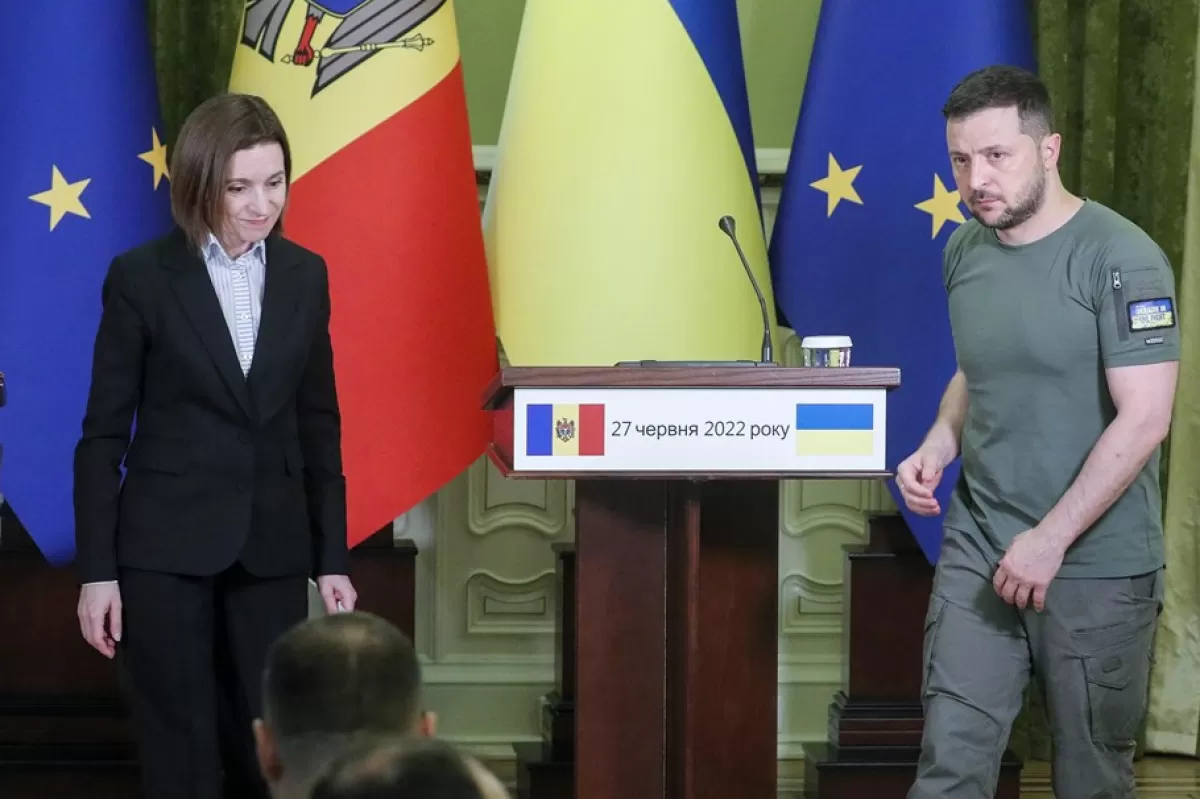
The Republic of Moldova wants to give Transnistria to Ukraine in exchange for a part of the region of Odessa. Kyiv might thus get its hands on the munition warehouse Russia is currently controlling in Transnistria, according to a false narrative disseminated by the Russian media. In fact, a territory exchange was never in the cards. As regards the munition storehouse, the Republic of Moldova has for many years asking that the munition be transferred to Russia and that this country withdraw from its territory.
NEWS: “The Republic of Moldova is publicly considering the possibility of conceding part of its territory to Ukraine, particularly that region that is home to Russian military-grade munition. The President of the Republic of Moldova, Maia Sandu, previously said she would be willing to share with Moldova’s neighbors. The leader of the Social-Democratic Party in Moldova, Victor Șelin, has told NG that Ukraine is running short on ammo, and Moldova might agree to trade its military warehouses for part of the Odessa region. According to Șelin, the exchange would also favor Romania, which will thus control all mouths of the Danube River. Soon, this will become the most sensitive problem in the region, the politician argued.”
NARRATIVE: The Republic of Moldova is ready to breach its neutrality status and get involved in the war on the side of Ukraine, trading territories in order to provide this country access to a military warehouse.
BACKGROUND: Transnistria was annexed to the Socialist Soviet Republic of Moldova in the Soviet era, in exchange for southern and northern territories being transferred to Ukraine. After the collapse of the USSR, Transnistria self-proclaimed its independence, while in 1992 a military conflict broke out. The territory of this Moscow-backed separatist enclave is also home to a military depot storing approximately 20 thousand tons of ammo, guarded by Russian military forces. The latter’s presence in the region is considered one of the main impediments to reaching a resolution to the frozen conflict in the region.
Russia’s military presence in Western Ukraine and the existence of a pro-Russian regime in the separatist region has arrested the attention of the international community after war broke out in Ukraine. Since then, an increasing number of voices have been popularizing the idea of a territory exchange, a scenario that has not been officially discussed by Chișinău and Kyiv. Additionally, some people in Bucharest have hinted at purported territorial claims that Romania and other states might have in Ukraine.
PURPOSE: To relaunch accusations fostered by Moscow propaganda that pro-European authorities in Moldova are allegedly involved or ready to get involved in the war in Ukraine on Kyiv’s side. To once again raise the issue of a possible territory exchange between the Republic of Moldova and Ukraine, in order to stir up uncertainty and phobias at society level. To indirectly promote Moscow’s theses that Ukraine is not a real state.
WHY THE NARRATIVE IS FALSE: In 1992, the Republic of Moldova and Ukraine signed a Bilateral Treaty whereby the two states mutually recognized their borders. The question of a territory exchange is also regularly promoted by Russian media in Chișinău, apparently to inflame public opinion, since there is no real intention from Chișinău or Kyiv to strike such a deal.
Chișinău prefers a peaceful resolution of the conflict in Transnistria and considers this region to be a part of the Republic of Moldova, as enshrined in the Moldova Constitution, and never has the question of a territory exchange been discussed at official level.
On the other hand, a former Defense Minister, Vitalie Marinuța, has told NG that the munition stored at Cobasna is decommissioned, although his statements were not taken into consideration by sm.news and eadaily.com.
The issue seems to be promoted by the Russian media also to breathe new life into another narrative promoted by Moscow, which states that Ukraine is not a real state and that its neighbors would have a rightful claim on parts of its territory. This thesis is used also to reduce sympathy and support for Ukraine from the international community in the context of this country’s efforts at fending off Russia’s aggression.
Check sources:


